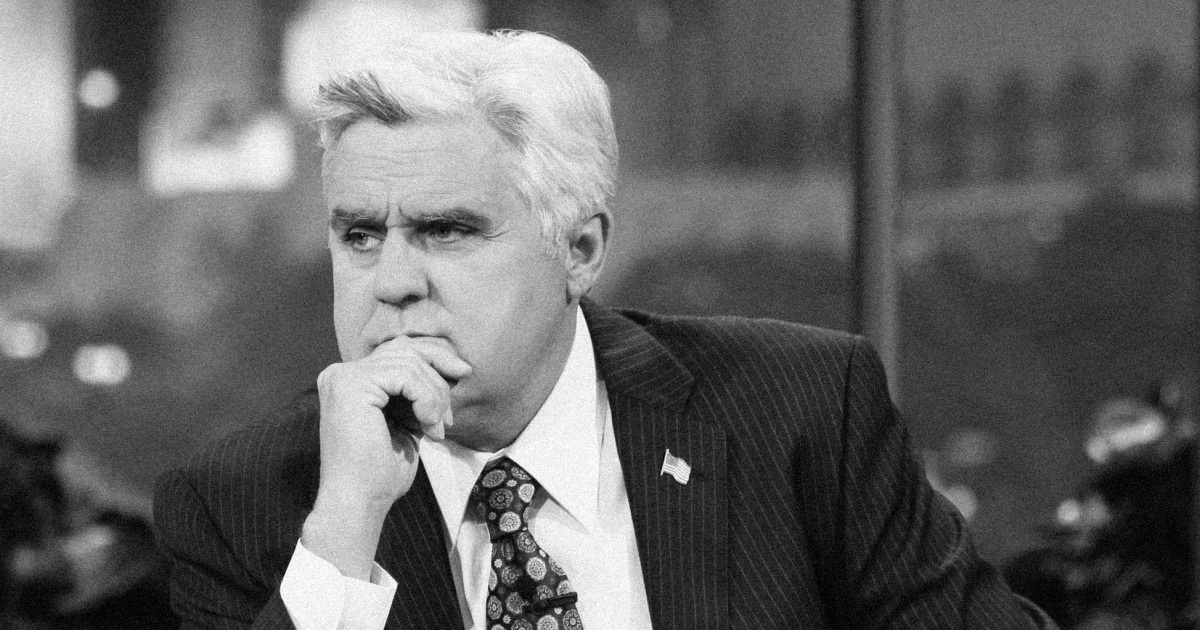
A wave of violent attacks against Asian American and Pacific Islanders has triggered a national reckoning in recent months that’s now finding its way to the world of professional comedy.
Former “Tonight Show” host Jay Leno issued an apology last month for decades of making racist jokes about Asians, a majority of which revolved around the derogatory trope of Koreans eating dog meat. The apology came in the wake of the shootings in the Atlanta area that left six Asian women dead and capped off a nearly 15-year campaign from the activist group Media Action Network for Asian Americans.
For Asian American comics and entertainers, a heightened awareness about racism in their profession — and the ways in which demeaning punchlines can lead to rampant harassment and violence — is welcome but overdue. Anti-Asian jokes have persisted, they say, because of the country’s long history of scapegoating and othering people of Asian descent, the lack of diversity in the upper echelons of the media and entertainment industry and, to some extent, the transgressive nature of comedy itself.
Leno's team did not respond to request for comment.
“It’s a little disheartening that a lot of these apologies are coming only in moments of national reckoning,” Aparna Nancherla, a comedian and actress who has performed stand-up specials for Netflix and Comedy Central, told NBC Asian America.
Despite growing Asian American representation in mass media, she said, lazy jokes that reinforce harmful stereotypes still permeate open-mic spaces and comedy clubs.
“The idea that a joke is just a joke is ludicrous,” Nancherla said, adding that the events of the past year demonstrate that “your words matter, and audiences can interpret them in very destructive ways.”
Prominent comedians across the ideological spectrum have made punchlines out of Asian people and Asian culture. On a 2016 episode of his talk show, Gavin McInnes, a former comedian and founder of the far-right group Proud Boys, said he’s had sex with “a lot of rice balls.” In 2019, “Saturday Night Live” dropped Shane Gillis for deploying an Asian slur and homophobic jokes on his podcast. The same year, actress Rosie O’Donnell apologized for using a caricatured Indian accent in a club set — more than a decade after sparking outrage for mocking a Chinese accent.
Because comedians are encouraged to push boundaries, and cultural norms are frequently shifting, it can often be difficult to separate materials that are cleverly transgressive from those that are lazy and vulgar.
“People want some unified equation on how to solve something in America,” Ronny Chieng, a stand-up comedian and senior correspondent on "The Daily Show," said. “There’s no equation for how to solve racism in comedy or in society.”
In 2016, Chieng starred in a widely watched "Daily Show" segment in which he took down a Fox News correspondent for mocking Chinatown residents who couldn’t speak English. This past week, the clip has again gone viral.
“My way of fighting back against negative stereotypes is making the type of comedy I’d like to see,” he said. “Making art in reaction to bad stuff is how we shift culture.”
The othering and joke-making of Asians in the U.S. has been happening for more than a century and half, said Anthony Ocampo, a sociologist and professor at California Polytechnic State University, Pomona. This practice of caricaturing Asian immigrants, he said, helped bolster the perpetual foreigner stereotype and the idea that they’re “unassimilable” into American life.
“Tens of millions of people in this country have little to no interactions with Asians,” Ocampo said. “If their only bit of information is going to be ‘Asians eat dog,’ then that’s a problem.”
The fact that mainstream comedians have gotten away with making degrading jokes for so long, he continued, shows how deeply ingrained anti-Asian racism is and how few Asians work in writers and producers rooms. This lack of voice and agency, he added, is one reason mocking marginalized communities can be so harmful.
“Punching up is a very important way of pointing out what’s wrong with society, whether it’s sexism, racism, classism or homophobia,” Ocampo said. “When you’re punching down, no one is forced to do anything, and the group that has the least access to the platform isn’t able to counteract it that effectively.”
Youngmi Mayer, a biracial comedian and co-host of the culture podcast "Feeling Asian," said programs like “The Tonight Show,” in the past few decades, have shaped so many people’s understanding of the world that they may have permanently “warped society.”
For the more than two decades that Leno was on-air, Mayer said, millions of people from her parents’ generation have heard the anti-Asian and homophobic jokes he sprinkled over his monologues. While some of “these painful ideologies” have lost their power in recent years, she said, “they’ve been beaten into people’s heads.”
“How can you even start to apologize for something like that?” she said.
In today’s fraught political atmosphere, it’s particularly important for comedians to be cognizant of the impact of their words, said Bryan Yang, a comedian and writer based in New York City.
“As a comedian, you have the responsibility to think about how far your jokes are going to trickle down,” he said. “If you’re arming the audience with racist ideas, they’re going to go out into the world and repeat your jokes.”
While individual accountability is a step in the right direction, Yang said “the process of how someone gets a voice” has to change as well.
“The gatekeepers are the ones who have to face some kind of reckoning,” he said. “The agents, the managers, the directors, the writers — they have to be aware that racism exists.”
The Link LonkApril 04, 2021 at 07:35PM
https://ift.tt/39DyO4Y
Jay Leno and why Asian jokes have gotten a pass for so long - NBC News
https://ift.tt/2BsGM2G
Joke
No comments:
Post a Comment